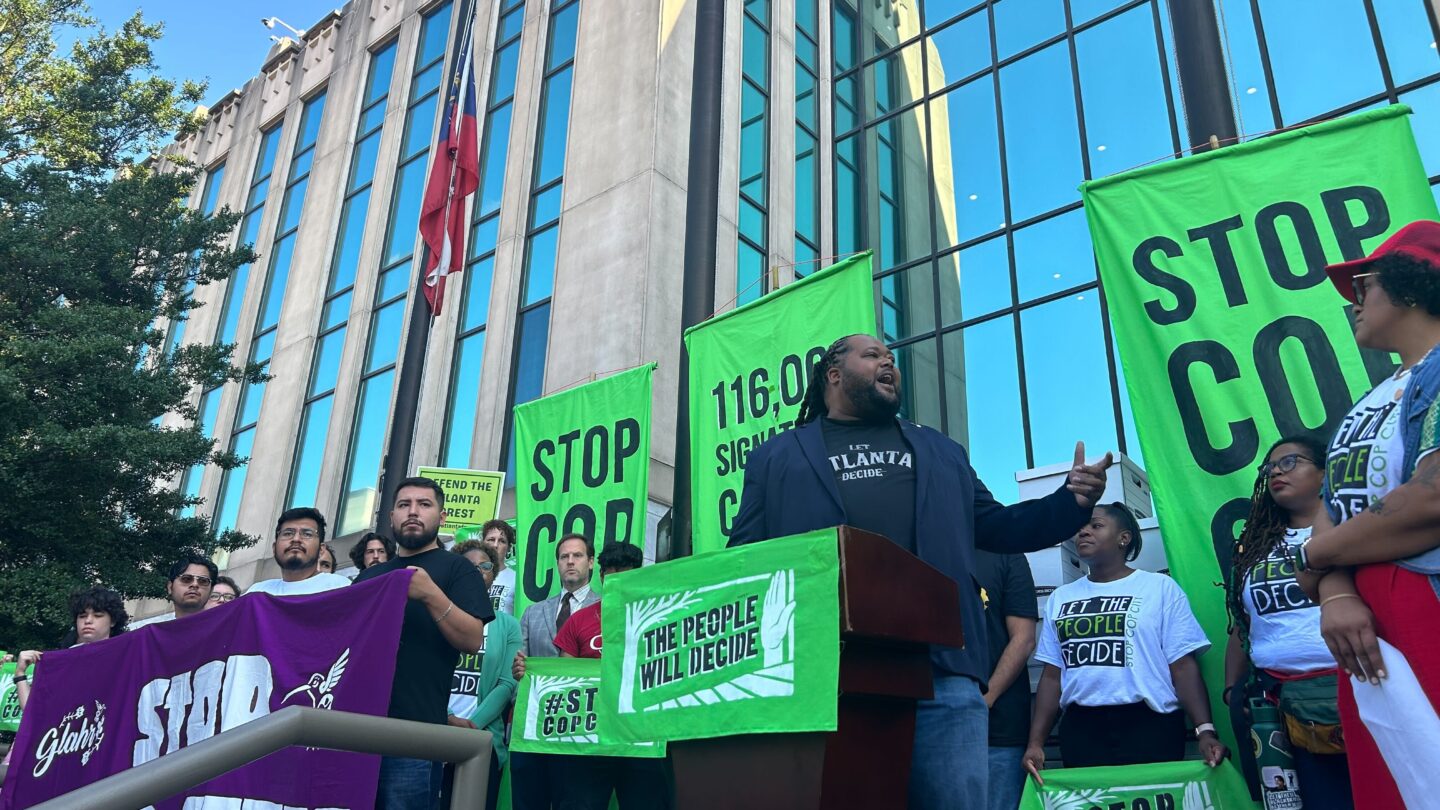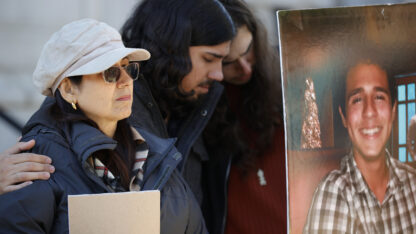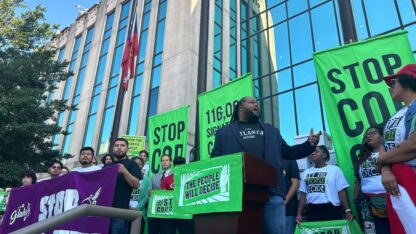'Cop City' organizers hit with legal challenge after collecting 116K signatures in favor of a referendum

Opponents of Atlanta’s controversial public safety training center said they collected more than 116,000 signatures to force a referendum on the project they’ve dubbed “Cop City.”
A group gathered to deliver the petitions at Atlanta City Hall on Monday, Sept. 11.
The initial goal had been to collect 70,000 signatures — or 15% of Atlanta’s registered voters as of the last election. But, organizer Mary Hooks said, the movement saw mass mobilization.
“We painted this city with our desire and hope that we will be able to see direct democracy really have a way to show up in this city like we haven’t seen before,” Hooks said.
Over the last two years, protesters have filled several city council meetings with hours of public comment in opposition to the project and held scores of protests that sometimes led to violent clashes with police. At a protest in January, protester Manuel Esteban Paez Teran was shot and killed by state troopers.
Dozens of activists have also been charged with domestic terrorism, and just last week, Georgia Attorney General Chris Carr announced the indictment of 61 people on racketeering charges over alleged efforts to stop the project’s construction.
John Taylor is with the organization Black Male Initiative. He said he felt he had no choice but to get involved.
“I have the burden of wearing a T-shirt that says, ‘Let Atlanta decide,'” Taylor said. “I have the burden of representing a group of Black men that have no trust, that believe and see no fidelity in our system and our government.”
However, in a turn of events on Monday, the city’s attorney, Robert Ashe, announced at a virtual press conference that the city will not start verifying signatures because the petition was submitted 21 days after the original deadline.
“Both state law and the city’s own ordinance are very clear that quote ‘a petition shall not be accepted for verification if more than 60 days have elapsed.'” Ashe said. “So the city is not in a position — does not have discretion — to choose to accept the petitions today.”
A federal court judge had granted organizers an injunction that allowed non-Atlanta residents to collect signatures and extended the deadline by an additional 60 days. An appeal court recently pressed pause on that decision.
A final ruling is now expected in October, meaning it’s unlikely a referendum could be placed on the ballot in November.








